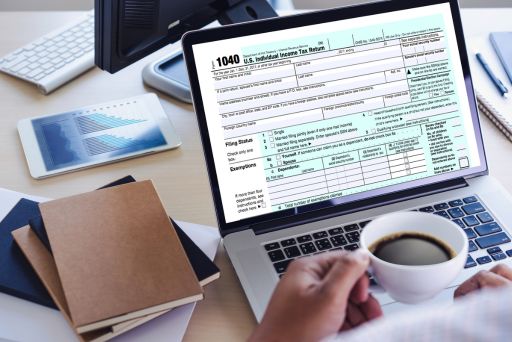In the United States, the majority of small businesses pay their employees bi-monthly. However, creating an appropriate payment timetable for employees presents a notable difficulty for small business owners, demanding thorough contemplation of multiple factors.
Federal and state laws require that a small business pays their employees at regular intervals. That is, a company cannot pay an employee twice in one month, and then only once the next month. Regardless of the time in between payroll, it must be scheduled at regular intervals.
The IRS does not mandate a certain number of pay periods each year. However, some states impose minimum payment frequencies. For example, Massachusetts, Ohio, and Utah require that employees are paid semi-monthly.

Benefits of a Well-organized and Systematized Payroll Schedule
A systematized payroll schedule holds significant importance for businesses due to several key reasons:
Consistency and Predictability
A set payroll schedule provides consistency and predictability for both employers and employees. It establishes clear expectations regarding when employees will receive their pay, promoting stability and reliability within the organization. This consistency fosters trust and satisfaction among employees, reducing uncertainties about their financial situations.
Compliance with Regulations
Adhering to a regular payroll schedule ensures compliance with various federal and state labor laws and regulations. These regulations often dictate specific deadlines for paying employees, and a structured schedule helps ensure that these deadlines are consistently met, avoiding potential legal issues or penalties.
Efficient Time Management
A systematic payroll schedule allows employers to efficiently allocate time and resources for payroll processing. By having predefined dates for tasks such as collecting employee hours, calculating wages, and processing payments, it streamlines the workflow and prevents last-minute rushes or errors in payroll processing.
Better Financial Planning
A scheduled payroll system facilitates better financial planning for businesses. It enables accurate forecasting of cash flow, allowing businesses to manage their finances more effectively. Knowing when payroll expenses occur helps in budgeting and prevents unexpected financial strains on the company.
Employee Morale and Retention
Timely and consistent paydays contribute to positive employee morale and satisfaction. When employees receive their wages on time, it enhances their trust in the employer and promotes a sense of appreciation for their work. This, in turn, can lead to higher employee retention rates and a more motivated workforce.
Reduced Errors and Discrepancies
A structured payroll schedule reduces the likelihood of errors and discrepancies in wage calculations or payments. With a set routine and ample time for processing, there’s less chance of rushed or inaccurate payroll, leading to fewer mistakes and subsequent corrections.
Enhanced Operational Efficiency
Implementing a systematic payroll schedule increases operational efficiency within the HR and accounting departments. It minimizes administrative burdens, allowing staff to focus on other critical tasks, thus optimizing overall business operations.

Key Elements to Check for an Efficient and Successful Payroll Scheduling System
Employee Payment Frequency
Determine how often you will pay employees (weekly, bi-weekly, semi-monthly, or monthly) considering the needs of your business and state regulations. Ensure this frequency aligns with your cash flow and budget.
Compliance with Laws and Regulations
Familiarize yourself with federal, state, and local labor laws governing payroll schedules. Ensure your chosen schedule complies with minimum wage laws, overtime regulations, and pay frequency requirements.
Employee Preferences and Needs
Consider the preferences of your employees. Some may prefer more frequent payments for budgeting purposes, while others might prefer less frequent but larger paychecks. Gather feedback to understand their needs.
Business Cash Flow and Financial Planning
Assess your business’s cash flow to determine a payroll schedule that aligns with your financial capabilities. Ensure the schedule allows for timely payment of salaries while maintaining a healthy cash reserve.
Administrative Processes and Workflows
Evaluate the time needed for payroll processing, including tasks such as collecting employee hours, calculating wages, and processing payments. Design a schedule that allows sufficient time for these tasks without rushing or errors.
Payroll Processing Time
Consider holidays, weekends, or other non-working days that might impact payroll processing. Adjust your schedule accordingly to accommodate these days to ensure timely payments.

Payroll Process: Ways to Compensate Your Employees
1. Understand State and Federal Payroll Laws
As a small business owner, it is important that you familiarize yourself with federal and state laws governing payroll. These laws cover minimum wage, overtime pay, tax withholding, and other regulations. Understanding these regulations is crucial to ensure compliance and avoid legal issues.
2. Choose a Payroll Schedule
Decide on a payroll schedule or pay period that suits your business and state regulations. Common schedules include weekly, bi-weekly, semi-monthly, or monthly pay periods. Ensure consistency and clearly communicate the schedule to employees.
There are several options of setting up a payroll schedule for employees. Some of them include:
Weekly: employees are often paid on the same day each week—normally Friday—for the previous week’s hours worked.
Bi-weekly: Like weekly, employees are usually paid on the same day of the week, perhaps every other Friday, for the immediate work done (Work September 1-14, paid for that work on September 14), or for the previous two weeks worth of work.
Semi-monthly: Payments are made to employees on the same days of each month, for example, the 1st and the 15th of the month. When these days land on a Saturday or Sunday, payday is typically pushed to either the Friday before or the Monday after.
Monthly: Paydays fall on the same day every month, normally the first or last day of the month.
You may pay your employees on different days of the month, which reduces the workload for the accountant at payroll time, but can also complicate things if meticulous payroll records are not kept.
3. Collect Employee Paperwork
Obtain necessary paperwork from employees, including Form W-4 (for federal tax withholding), Form I-9 (Employment Eligibility Verification), direct deposit authorization, and any other relevant forms mandated by federal or state laws.
These documents are essential for an employer to gather pertinent information from a new employee. They are typically completed on the employee’s first day of work and are crucial for legal and administrative purposes:
Form I-9, Employment Eligibility Verification:
This form is required by the U.S. Citizenship and Immigration Services (USCIS). It verifies an employee’s identity and authorization to work legally in the United States. It requires the employee to present acceptable documents to confirm their identity and employment eligibility.
Form W-4, Employee’s Withholding Certificate:
The W-4 form is used by the employer to determine the amount of federal income tax to withhold from the employee’s paycheck. It includes information such as the employee’s marital status, number of allowances, additional withholding amounts, and exemptions, which directly impact the tax withholding calculations.
State Withholding Allowance Certificates:
Some states require additional withholding allowance certificates apart from the federal W-4. These state-specific forms are used to determine the amount of state income tax to be withheld from the employee’s wages, based on state tax laws and the information provided by the employee.
Some companies choose to pay their hourly and salaried employees on different days of the month, which reduces the workload for the accountant at payroll time, but can also complicate things if meticulous records are not kept.
Since salaried employees are paid the same amount for each paycheck regardless of hours, they can be paid currently without any delay.
For example, a salaried employee who has an annual pay of $36,000 can be paid
On the other hand, paychecks for employees paid on an hourly basis take more time to calculate and the amounts are different from paycheck to paycheck.
4. Calculate Pre-Tax Pay
Determine employee’s gross pay by multiplying the number of hours worked by the hourly rate or using the agreed-upon salary. Deduct any pre-tax employee benefits, such as retirement contributions or health insurance premiums, from gross pay to calculate pre-tax pay.
5. Figure Out Tax Withholding
Use the information provided on Form W-4 to calculate federal income withholding tax. State income tax withholding may also apply, depending on the state. Utilize IRS guidelines and state tax tables to accurately withhold the correct amount.
6. Determine Net Pay
Subtract all deductions, including taxes and any post-tax deductions (like post-tax benefits or garnishments), from the pre-tax pay to arrive at the employee’s net pay—the amount they receive in their paycheck.
7. Distribute Paychecks
Distribute paychecks or arrange for direct deposits on the chosen payroll schedule. Ensure accuracy and timeliness in payments to maintain employee satisfaction and compliance with fair labor standards act laws.
8. File Taxes
Submit payroll taxes to the appropriate government agencies on time. This includes federal income tax withholding, Social Security, Medicare taxes, and state payroll taxes. Failure to file taxes properly can result in penalties.
9. Pay Into Benefits
If your business provides benefits such as health insurance or retirement plans, ensure that the employer’s contributions are made accurately and on time.
10. Maintain Payroll Records
Keep detailed records of all payroll-related transactions, including employee compensation, tax withholdings, benefits, and tax filings. Maintain these records for the required period as per federal and state laws.

Before setting up a pay schedule for employees, consider the pros and cons and costs associated with payroll for your company. It is best to have a system including a small business bookkeeping in place before hiring employees so there is less confusion and adjustments to make as the company grows.
Visit more posts in our Payroll 101 series:
What is Payroll?
The 1099-Misc Explained
Setting Your Own Salary as a Business Owner
The W-2 Explained
What are the Costs Associated with Payroll?
5 of the Best Benefits to Offer Employees
The Power of the Employee Pay Stub














 Another question we hear often is “If a company gives me something for doing a review for them, do I have to report it on my tax return?” For any established blogger this can be a real issue. When you start adding up everything that you’ve received for doing reviews…trips, electronics, gift cards, appliances, etc. it may become a significant amount.
Another question we hear often is “If a company gives me something for doing a review for them, do I have to report it on my tax return?” For any established blogger this can be a real issue. When you start adding up everything that you’ve received for doing reviews…trips, electronics, gift cards, appliances, etc. it may become a significant amount.





